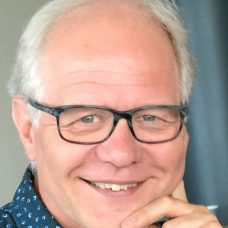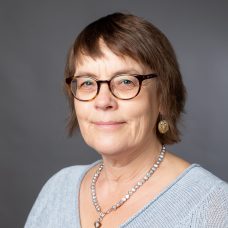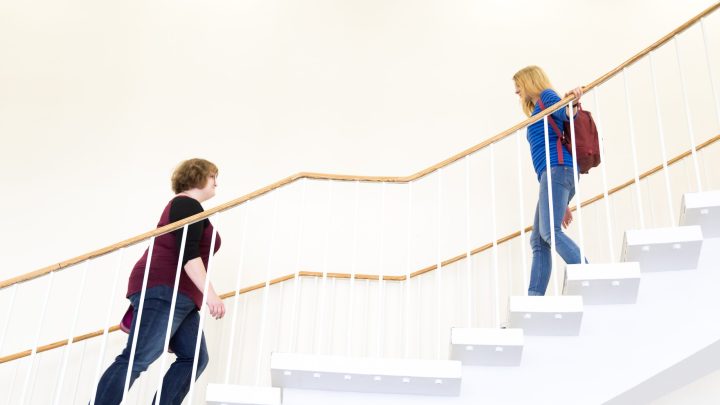Raising awareness in higher education about equity, diversity and inclusion with SMILE project tools
SMILE Project (Social Meaning Impact through Lifelong learning universities in Europe, Erasmus+, 2020-2023) aims to promote inclusive learning. It has been done by developing, testing and implementing innovative tools that improve the way higher education institutions (HEI) deal with diversity and social inclusion.
SMILE has focused on three main areas of inequality and disadvantage in higher education. These areas were called “pillars”. The pillars are: Students with low socio-economic status, migrant background students and women in leadership positions.
Gheorghe Asachi Technical University of Iaşi (TUIASI) from Romania and University of Turku (UTU) from Finland together with SOLIDAR Foundation, a European and worldwide network of Civil Society Organisations, which is based in Belgium, have worked together on students with low socio-economic status. The project has tried to find solutions to meet the challenges of lower access participation and attainment in higher education of learners with a lower socio-economic status. Even if the contexts in Finland and Romania are different, it has been obvious that through dialogue and working together we can learn a lot from each other and together.
Flexible audit model gives voice to different groups
The SMILE project developed a diversity audit model, which was tested by all HEI partners. In the model three groups are interviewed in each audit: The management, academic staff and the students. The audit tool is very flexible to make it suit the user’s real needs. It also includes a self-assessment tool. Answering the self-assessment questionnaire in an honest way will help the university to see how much attention to diversity and inclusion the institution is giving.
The Subject teacher development committee took part in the diversity audit in the University of Turku. The Chair of the committee Professor Peter Hästö (Mathematics) was very satisfied: ”Participating in the Diversity Audit helped us to see different aspects of diversity at play in teacher education. Hear various team members’ opinions on the questions during the focus group discussion highlighted the need to internal communication in the development group to ensure that we are on the same page.”
Kia Lundqvist participated in the diversity audit in TUIASI in Romania. In TUIASI, students with low SES are continuously guided and supported to complete their study programmes by voluntary enrolment in the dedicated university projects existing in each of the 11 faculties. During their 1st academic year each student is assigned to a teacher trained to act as a mentor and a student trained to act as a tutor. Regular meetings are organised to engage in meaningful discussions with successful professionals and graduates as well as remedial classes that are delivered voluntary by teachers in fundamentals disciplines in engineering education. One voice of the TUIASI graduates participating in the diversity audit is testimony to the effectiveness of this approach to support low SES students: “I would not stand here today as a TUIASI graduate if it has not been for these mentors and tutors, so many people that helped and supported my development and growth as a student”. As the Vice-Rector Irina Lungu (TUIASI) concluded after the audits, the meetings during the audit on diversity give voice to multiple perspectives and opinions in the university community, to foster transformations and answer the surfaced needs of various people.
One pilot audit was conducted at the Faculty of Technology (UTU). Dean Jaakko Järvi tells about his experiences: “At the Faculty of Technology we desire to be inclusive, a work place that embraces diversity, but also recognize that fulfilling this desire requires work. We have, for example, organized trainings on inclusiveness and equity. We participated in a SMILE audit, which proved to be a great opportunity to further raise awareness and also our competence on these issues. The audit allocates ample time for identifying ”blinds spots” with reference to equity and possible practices that might work counter to inclusiveness.”
Adjustable workshops and integration in an ongoing processes
The project also produced the structure and materials for continuing professional development (CPD) courses for university staff (2 X 4 hours) on each project theme. These courses/workshops are very interactive and they were piloted in each participating university. As the audit model, also these courses are flexible and can be modified according the local needs. According the feedback both the content and the working methods were evaluated very positively.
It has been very important that the SMILE Project is closely integrated in the ongoing processes of the university. Project partners have worked together with the student´s guidance and support network and the Study and Work Well-being Services of the University of Turku. The project also had a presentation in the meeting of the Equality committee and Vice-Rector Piia Björn was a speaker in the first workshop organised by the project.
Policy recommendations to reach wider impact
SMILE Project has considered all the perspectives and experiences collected during the project and developed an Operational Policy Recommendations Action Plan. This document has been discussed with different stakeholders at different levels in many events: internally with the consortium, followed by a survey to stakeholders and an online consultation session with the experts.
Guidance is the key
With well-built guidance the universities can support students with different needs. Guidance helps students to reflect what inner and outer aspects affect their choices and actions, to see different possibilities and to make educated decisions. Development Specialist Susanna Ahteensuu from the Student Support Services (UTU) pinpoints that with the help of SMILE project, the guidance staff of the University of Turku has had a chance to reflect and discuss how socio-economic background affects students and studying and how our guidance system and methods of guidance are able to minimize these effects to offer more equal opportunities for students to succeed in studies and in life.
For universities to be inclusive it is important that the services can reach all the students. But in order to have guidance and services which are reachable to everybody and which cover all the needs of the more diverse student population, the universities must have their fingers on the pulse. The tools of the SMILE Project will help universities to recognise their situation and develop the skills and awareness of the personnel.
SMILE tools
The SMILE tools are available in six languages, including Finnish language starting from December 2023. Please, download the SMILE tools at http://smile.eucen.eu/
- Policy recommendations and Action Plan https://smile.eucen.eu/policy/
- Diversity Audit Tool https://smile.eucen.eu/the-smile-audit-model/
Staff training: CPDs in 6 languages
- Building Multicultural Competence at University – Critical reflections and action https://smile.eucen.eu/migrant-background/
- The Glass Ceiling Ain’t Broken – A CPD course on women in leadership https://smile.eucen.eu/women-in-leadership/
- SMILE CPD course for HE staff on Students with low socio-economic status https://smile.eucen.eu/low-socio-economic-status/

Senior Planning Officer, Brahea Centre

Project Manager of SMILE, Project Coordinator of International Programmes, Partnerships and Strategic Engagement
